 Jerold S. Bell, DVM (Moderator, Theme #3: Big Data)
Jerold S. Bell, DVM (Moderator, Theme #3: Big Data)
Jerold S. Bell, DVM, is an adjunct professor of genetics at Cummings School of Veterinary Medicine at Tufts University. He also practices at Freshwater Veterinary Hospital in Enfield, Connecticut.
He earned his DVM from Cornell University and was trained in genetics and genetic counseling at Michigan State University and University of Missouri.
Dr. Bell chairs the WSAVA hereditary disease committee, is on the board of directors for the OFA – Canine Health Information Center (CHIC), and the American Kennel Club Canine Health & Welfare advisory panel.
He and his wife Candice are breeder/owners of Gordon Setters, with multiple Best in Show dogs, National Specialty winners, Master Hunters and Westminster breed winners.
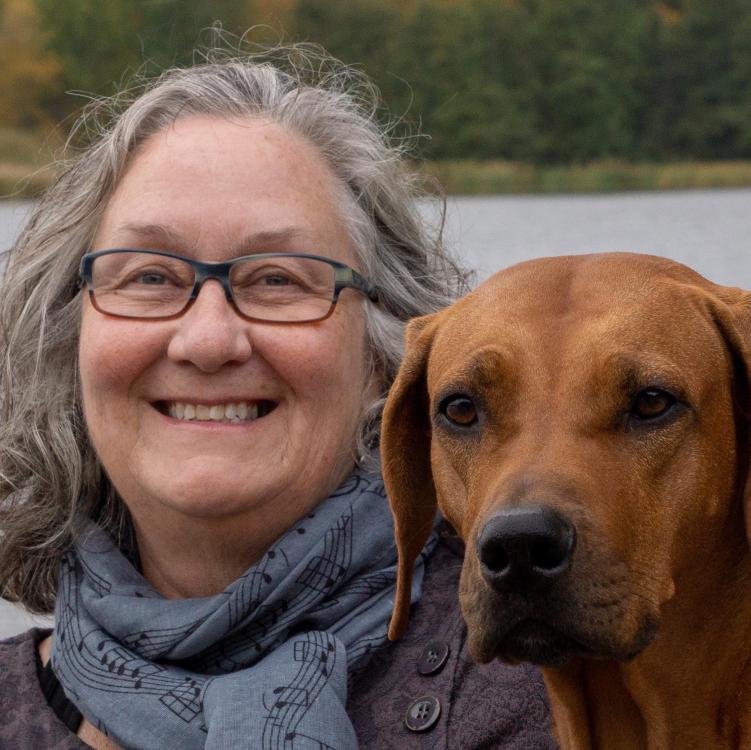 Dr. Brenda N. Bonnett (Speaker: Humans' complex, diverse, and evolving relationships with dogs. Impacts on their health and welfare, and ours.)
Dr. Brenda N. Bonnett (Speaker: Humans' complex, diverse, and evolving relationships with dogs. Impacts on their health and welfare, and ours.)
Founding CEO (Retired), International Partnership for Dogs
Ever since Dr. Brenda Bonnett proposed the development of a canine health and welfare information network in 2011, she has been the driving force behind the IPFD and DogWellNet.com.
As IPFD’s first Chief Executive Officer, Brenda was responsible for the development and operation of the IPFD including its technical infrastructure, partnership building, programs and projects, and more. She stepped down from the CEO role on 31 October, 2021 and continued to share her expertise with the international dog community as IPFD’s Veterinary Science Officer until July 2022. The wealth of information that Brenda and IPFD the team created during her tenure remain on DogWellNet.com as an enduring resource to support the health and welfare of dogs.
Formerly tenured faculty at the Ontario Veterinary College, Brenda is a veterinarian and Consulting Epidemiologist. Her research and projects in Europe and North America have included the development of national and international programs with kennel clubs; extensive work with / publications on animal insurance data; human-animal interactions, numerous pet welfare initiatives spanning the National Council on Pet Overpopulation (1993) and for the American Humane Association: Cat Welfare Forum (Sept. 2013) and Keeping Pets (Dogs and Cats) in Homes: A Three-Phase Retention Study. As Lead Scientist at Morris Animal Foundation (2010) she assisted in development of the (now titled) Golden Retriever Lifetime Study.
Brenda played a major role in organizing and presenting the first four IPFD International Dog Health Workshops (IDHWs) and subsequent virtual IDHW sessions on canine genetics. She has also been a frequent speaker on topics of animal health, welfare, and human-animal interactions at scientific meetings, as well as to many stakeholders in the dog world (i.e., breed and kennel clubs, judges, and veterinarians). Most recently, Brenda made virtual presentations at the April 2022 Embark Canine Health Summit and the July 2022 Symposium on Healthy Dog Breeding (presented in collaboration with the Canadian Kennel Club and Canadian Veterinary Medical Association).
Other affiliation: President, B Bonnett Consulting, Canada
(2)(1).thumb.jpg.a1c5bcb435d991b3a7c5dc01f1c98ff9.jpg?w=200) Dr. Jonas Donner (Speaker, Theme #3: Big Data)
Dr. Jonas Donner (Speaker, Theme #3: Big Data)
Dr. Donner earned his doctorate in medical genetics at the University of Helsinki, Finland, in 2012. His research experience includes studies of the molecular background of both Mendelian and complex human disorders. Dr. Donner’s inspiration for examining dogs comes from the Finnish tradition of studying the disease heritage of isolated populations. His current research interests include the characterization of inherited diseases and traits in dogs and cats, and exploring their distribution, prevalence and relevance across breeds.
Dr. Donner has worked at the forefront of canine genetic testing since receiving his doctorate, shaping the future of personalized pet care and veterinary medicine through involvement in big data-driven research initiatives and the development of state-of-the-art genetic tests for companion animals. Dr. Donner currently holds the position of Senior Scientist – Canine Genetics at Wisdom Panel, a company guided by the mission to strengthen the bond between pets and their people through world-leading insights powered by DNA. He is also part of the dog breeder community himself as he and his wife actively breed Shetland Sheepdogs.
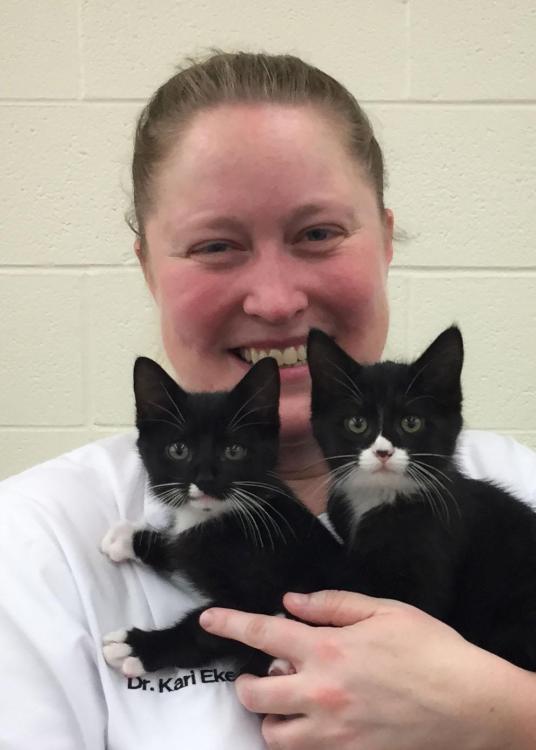 Kari Ekenstedt, DVM, PhD (Speaker/Theme Leader, Theme #3: Big Data)
Kari Ekenstedt, DVM, PhD (Speaker/Theme Leader, Theme #3: Big Data)
Assistant Professor, Department of Basic Medical Sciences, College of Veterinary Medicine, Purdue University
Dr. Kari Ekenstedt is an Associate Professor in the Department of Basic Medical Sciences at Purdue University's College of Veterinary Medicine. She earned her PhD in Comparative and Molecular Biosciences and her DVM, both from the University of Minnesota. Dr. Ekenstedt is the director of the Purdue Canine Genetics Laboratory, where her research group investigates naturally occurring genetic diseases in dogs (and occasionally cats) and develops genetic tests to help guide breeders. These tests are offered through Purdue's Animal Disease Diagnostic Laboratory, a non-profit entity. Dr. Ekenstedt's other "hat" is to teach comparative gross anatomy to the first-year veterinary students at Purdue.
When Dr. Ekenstedt is not in the lab or teaching, she is usually deep into a book, feeding her bibliophilic addiction. She shares her home with one chunky cat and zero dogs (this allows her to be Switzerland when it comes to any dog breed). Dr. Ekenstedt is a die-hard Green Bay Packers fan and even owns a [very small] part of the team!
 Annika Forsberg (Speaker: Agria Breed Profiles)
Annika Forsberg (Speaker: Agria Breed Profiles)
Annika Forsberg is now an independent consultant for Agria after having worked with and at Agria since 1998. Over the years, her main focus has been regional sales management.
In 2019, Annika began lecturing about Agria Breed Profiles (2011–2016 versions). During the pandemic, interest in online lectures increased, and between 2020 and 2022, many breed clubs were interested in a review of their own profiles.
In 2023, Annika was involved in the development of version 5, which covers the years 2016–2021. Since the latest version was released in November 2023, Annika has conducted approximately 40 lectures, the vast majority of which have been online.
Annika is a new co-owner of kennel Axbor, a 50-plus-year-old border terrier kennel, and the first litter of her own puppies is expected around July 10.
(Photo by Wilhelm Widerholm)
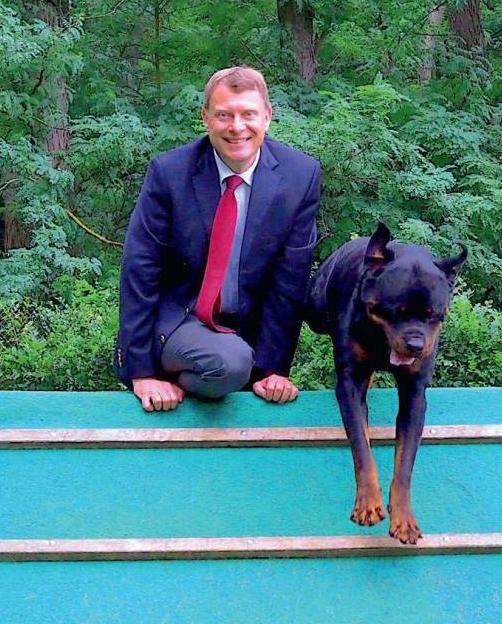 Peter Friedrich (Theme Leader/Speaker, Theme #1: Supply and Demand – Every Dog Counts)
Peter Friedrich (Theme Leader/Speaker, Theme #1: Supply and Demand – Every Dog Counts)
President of the German Kennel Club (VDH)
Professor for Psychology and Criminology
Board Member, International Partnership for Dogs
Education and Profession Studies in Psychology and Biology; Professor for Psychology and Criminology: Analysis of extremely violent actions, especially cases of murder in the context of investigations, when the offender is unidentified, in the context of interrogation and questioning of accused, suspects and witnesses, in the context of court cases, in the context of prevention
Memberships: Allgemeiner Deutscher Rottweiler Klub since 1980, Deutscher
Windhundzucht- und Rennverband since 2000, Deutscher Doggen Club 1888 since 2005 Breeding and Racing Society 2008 - 2011
Working Judge (IPO, FH, BH) since 1990; Specialist Breed Judge since 2008
Honouring : Großes Hundeführer-Sportabzeichen mit Kranz of the German Kennel Club (VDH) 1989
Kennel Rottweiler "vom Sternbogen" together with Elvira and Reinhold Mühle and Manfred
Mayer; Tahuara's Greyhounds and Sloughis , Owner: Heide Friedrich (Teamwork)
 Paula Horne (Speaker, Theme #4: Does the colour matter? Defining Breed vs Variety)
Paula Horne (Speaker, Theme #4: Does the colour matter? Defining Breed vs Variety)
Paula Horne has been a chairperson of Barbet Finland, the breed club of barbets in Finland, since 2013. She is also a member of the breeding committee of the breed. Being a keen hunter, Paula has also been a member of Finnish Kennel Club's hunting dogs' working group.
She breeds barbets with her twin sister by a kennel named Nuutuksen. They have bred over 100 puppies, over 40 percent of which with a passed working test and 33 percent with a CAC. Paula has been involved in the two cross-breedings done with barbets in Finland, and has also actively followed the cross-breeding projects in other breeds.
Paula has two barbets, a pont-audemerspaniel and a french spaniel at home. She hunts with them, and they assist in tracking wounded animals after traffic accidents.
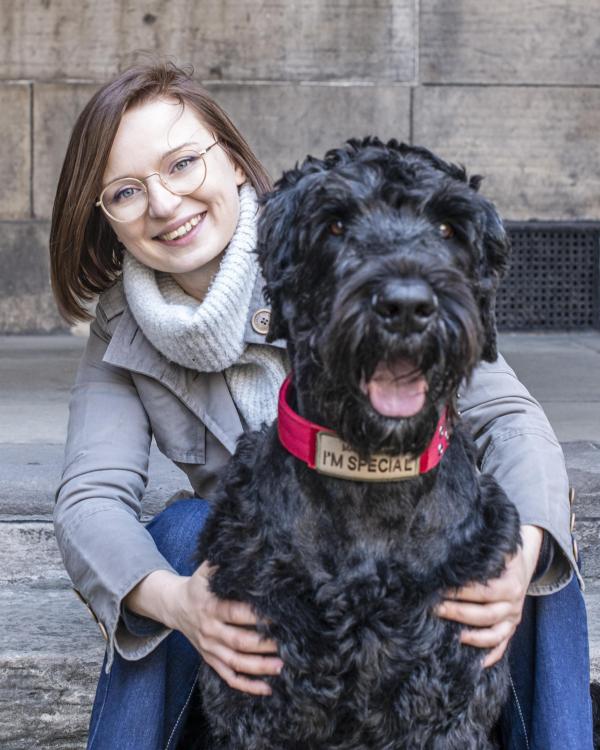 Dr. Joanna Ilska (Speaker, Theme #3: Big Data)
Dr. Joanna Ilska (Speaker, Theme #3: Big Data)
Genetics Research Manager at The Kennel Club (UK)
Joanna has always been interested in animals and more specifically, the power, complexity and ethics of breeding animals to suit human needs. This has led to her completing her first degree in BSc Applied Biosciences (Animal Science) in 2008, followed by an MSc in Quantitative Genetics and Genome Analysis at the University of Edinburgh in 2009. In 2014 she completed her PhD in Genomic Prediction of Breeding Values in Broiler Chickens at the Roslin Institute, University of Edinburgh.
Following her PhD, she worked as a Research Fellow on a number of projects in a wide range of species, before joining The Kennel Club in 2021.
Her main expertise lies in prediction of breeding values for complex traits, using large scale genomic data such as whole genome sequences.
In private life, Joanna is a “dog person”, keenly involved in dog training and dog sports with her Russian Black Terrier, Falka.
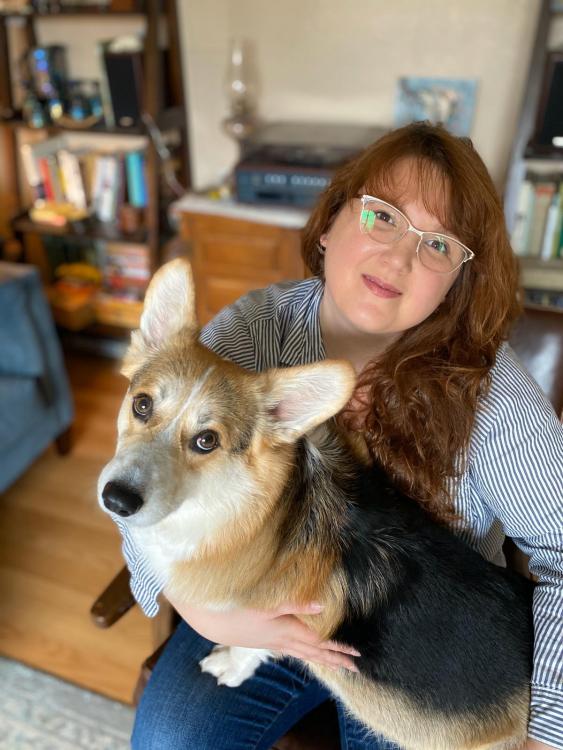 Aimée Llewellyn-Zaidi (Speaker, Theme #2: Breeding for Health and Wellbeing)
Aimée Llewellyn-Zaidi (Speaker, Theme #2: Breeding for Health and Wellbeing)
HGTD Project Director, International Partnership for Dogs
Aimée is responsible for maintaining and developing Harmonization of Genetic Testing for Dogs database, as well as resources for genetic and health education and support. This includes updating the generic phenes (test) information, Breed Relevance Rating, and communication with our Collaborating Experts. In addition, Aimée fields queries from our DogWellNet.com members and breeders on issues related to genetics and genetic counselling.
Formerly Head of Health and Research at the (Royal) Kennel Club, Aimée provided bespoke advice to Kennel Club clients, and developed evidence-based canine health resources and engagement programs for the public and professional. Aimée's experience includes development of health teams and collaboration building, active engagement and involvement with committees such as the Kennel Club and British Veterinary Association (Canine Health Schemes); direct collaboration with international universities, and the former Kennel Club Genetics Centre at the Animal Health Trust, and engagement with projects such as Vet Compass (RVC). She is an experience presenter, with engagements ranging from BSAVA Congress to virtual genetic education meetings, as well as numerous publications and media engagements. Aimée was also involved in the initial development of the journal “Canine Genetics and Epidemiology,” and remains active as an editorial board member.
When not working on the Harmonization of Genetic Testing for Dogs, Aimée spends her time walking her Pembroke Welsh Corgis, McDuff and Poppy.
 Laureline Malineau (Speaker: Choose Health Initiative)
Laureline Malineau (Speaker: Choose Health Initiative)
Global Corporate Manager at Royal Canin
For the past 20 years working at Royal Canin, Laureline has built relationships with feline and canine institutions, NGOs, vet associations and authorities, and has recently been one of the instigators of the CHOOSE HEALTH initiative. CHOOSE HEALTH focuses on driving responsible pet ownership and responsible breeding, working together with partners – veterinarians, vet associations, breeders, canine and feline federations and clubs – along with key stakeholders – governments, non-governmental organizations, and pet owners – for a world that puts pet health first over physical appearance.
Laureline also co-leads the FEDIAF Animal Welfare Taskforce and is a member of the ICECDogs Working Group.
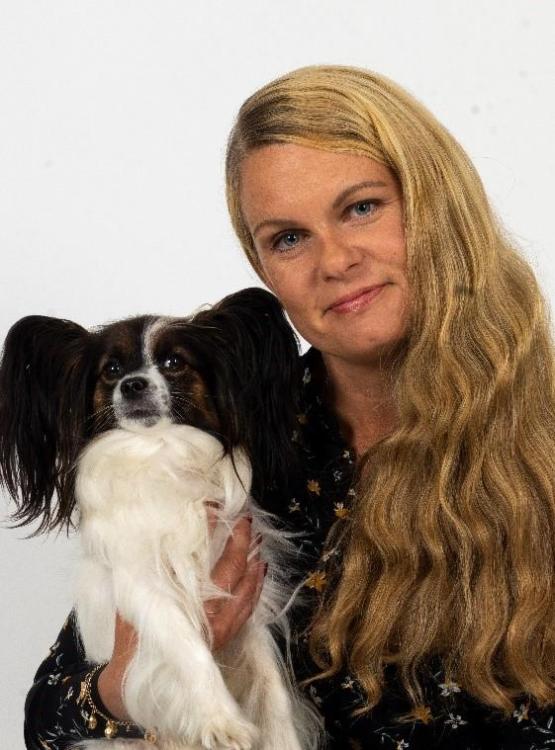 Sofia Malm Persson, MSc, PhD (Speaker, Theme #4: Does the colour matter? Defining Breed vs Variety)
Sofia Malm Persson, MSc, PhD (Speaker, Theme #4: Does the colour matter? Defining Breed vs Variety)
Dr. Malm Persson obtained her undergraduate degree in Animal Science at the Swedish University of Agricultural Sciences (SLU) in Uppsala, and her PhD about breeding for improved canine hip and elbow health at the Dept. of Animal Breeding and Genetics, SLU.
Since January 2011, Sofia is employed by SKK (the Swedish Kennel Club) Dept. for Breeding and Health where she is mainly involved in issues regarding breeding programs, genetic tests and prediction of breeding values. Sofia is also co-opted as genetic expert in the SKK Breeding Committee.
She is occasionally involved in research projects and gives lectures for breeders and students at SLU. In addition to several scientific papers, Sofia has written a book about dog breeding for Swedish breeders.
Photo: Måns Engelbrektsson
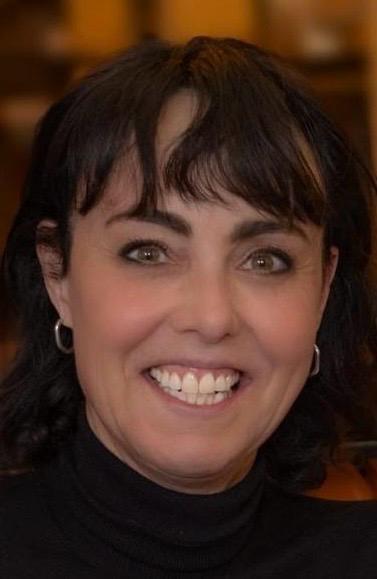 Monique Megens (Speaker, Theme #2: Breeding for Health and Wellbeing)
Monique Megens (Speaker, Theme #2: Breeding for Health and Wellbeing)
Monique dedicates much of her time to help raise awareness, to liaise between stakeholders and to help ensure companion animal health and welfare is high on the international agenda.
Graduated from Utrecht University The Netherlands (1998), Monique started her career as a companion animal veterinary practitioner. In 2008 she sold her clinic to work as an independent project manager, consultant and executive.
Monique has been involved in veterinary politics in Europe for many years, serving amongst others as the President of the Federation of European Companion Animal Veterinary Associations (FECAVA). She was as member of the joint Union of European Veterinary Practitioners (UEVP) & Federation of Veterinarians of Europe (FVE) Animal Welfare Working Group responsible for the European veterinary position paper on stray dogs, the position paper on (il)legal dog trade and the position paper on responsible breeding of dogs.
Currently, she is amongst others member of WSAVA’s Hereditary Disease Committee, and the interdisciplinary Responsible Breeding Committee, a consultant to the Dutch Kennel Club and the chair of the International Collaborative on Extreme Conformations in Dogs.
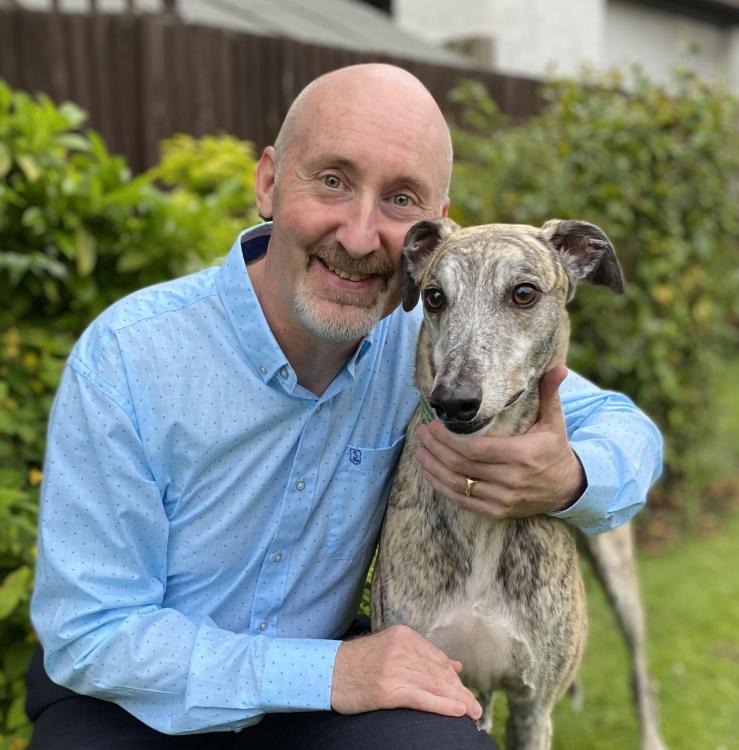 Dr. Dan O’Neill (Speaker, Theme #2: Breeding for Health and Wellbeing)
Dr. Dan O’Neill (Speaker, Theme #2: Breeding for Health and Wellbeing)
Associate Professor Companion Animal Epidemiology, RVC
MVB BSc(hons) GPCert(SAP) GPCert(FelP) GPCert(Derm) GPCert(B&PS) PGCertVetEd FHEA MSc(VetEpi) PhD FRCVS
Following 22 years in general practice, Dan is now Associate Professor in Companion Animal Epidemiology at the RVC where he co-leads the VetCompass™ Programme. As well as over 140 papers covering the epidemiology of companion animals with a specific focus on extreme conformations in dogs, he has also authored the books ‘Breed Predispositions to Disease in Dogs and Cats’ and ‘Health and Welfare of Brachycephalic (Flat-faced) Companion Animals’. He chairs the UK Brachycephalic Working Group and is a founding and board member of the UK Legal Advisory Group on Extreme Conformation in Dogs and the International Collaborative on Extreme Conformation in Dogs.
Dan was awarded a Fellowship of the Royal College of Veterinary Surgeons in 2018, the BSAVA Blaine Award for Advancement of Small Animal Science in 2019 and the International Canine Health Award from the Kennel Club Charitable Trust in 2021.
 Rowena Packer (Moderator, Theme #1: Supply and Demand – Every Dog Counts)
Rowena Packer (Moderator, Theme #1: Supply and Demand – Every Dog Counts)
Rowena is the Lecturer in Companion Animal Behaviour and Welfare Science at the Royal Veterinary College, London. Rowena leads a research group exploring diverse topics in this area, including the impact of chronic and inherited disorders on dog behaviour and welfare, and the impact of owner knowledge, attitudes and behaviour on canine welfare.
She has received >£1.9 million of research funding to date, of which ~£750,000 has been held as Principal Investigator. She held an independent BBSRC Future Leader Research Fellowship from 2017-2021.
Rowena has co-authored >90 peer reviewed papers and book chapters since 2012 and co-edited the textbook ‘Health and Welfare of Brachycephalic (Flat-faced) Companion Animals’ (2021).
Rowena holds a PhD from the Royal Veterinary College (2013) which explored the impact of extreme conformation on canine health, a 1st Class BSc (Hons) in Animal Behaviour and Welfare from the University of Bristol (2009), and a PGCert in Veterinary Education from the Royal Veterinary College (2021).
Rowena is an Editorial Board Member for the journal Scientific Reports, a Coordinating Group Member for the Animal Welfare Research Network, a Canine Scientific Advisory Committee Member for Guide Dogs, and a founding member of Brachycephalic Working Group and the Legal Advisory Group on Extreme Conformation in Dogs.
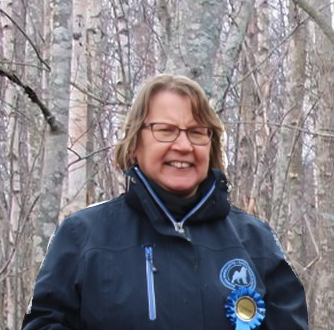 Kirsi Sainio (Theme Leader, Theme #2: Breeding for Health and Wellbeing)
Kirsi Sainio (Theme Leader, Theme #2: Breeding for Health and Wellbeing)
Board Member, International Partnership for Dogs
Education: Ph.D., University of Helsinki, Faculty of Medicine 1998
Adjunct Professor in Developmental Biology, University of Helsinki 1999 - ; Principal Investigator, Institute of Biomedicine, Biochemistry and Developmental Biology 2003 – ; Senior University Lecturer, Institute of Biomedicine 2008 –
Research Activities: 50 original scientific articles; Other publications: 15 (chapters in books, reviews); Supervisor of numerous Ph.Ds and master’s thesis
Public Relationships: Specialist in Radio Broadcasting and TV news and special programs (Finnish Broadcasting Company News, Finnish Broadcasting Company Prisma-program; Swedish Radio Vega etc.), interviews to Newspapers; Numerous articles in magazines
Currently:
Member of the Board of The Finnish Kennel Club 2008
Finnish Kennel Club: Chair of the Breeding and Scientific Commission
Finnish Kennel Club: Chair of the DNA-group
Nordic Kennel Union: Chair of the Scientific Committee and DNA-group
Fédération Cynologique Internationale; Scientific Commission, member
Fédération Cynologique Internationale; Breeding Commission, member and secretary
Finnish Kennel Club: conformation judge (FCI group 3; Terriers)
The Skye Terrier Club of America, Health Committee Chairperson
Skye Terriers since 1974, breeder (prefix of Skyeline).
 Peter Sandøe (Speaker, Theme #1: Supply and Demand – Every Dog Counts)
Peter Sandøe (Speaker, Theme #1: Supply and Demand – Every Dog Counts)
Peter Sandøe is originally trained as a philosopher at the University of Copenhagen and at Oxford University. He has been professor of bioethics at the University of Copenhagen since 1997, presently with his chair divided between the Department of Veterinary and Animal Sciences and the Department of Food and Resource Economics. Since 2020 he has been director of the Centre for Companion Animal Welfare.
He is committed to interdisciplinary work combining perspectives from natural science, social science and philosophy. For more information about his research in the field of animal ethics, animal welfare, human-animal relations, and veterinary ethics see www.animalethics.net.
Peter is also an active participant in public outreach and debates, both nationally and internationally. Of special relevance to companion animal welfare can be mentioned the book Companion Animal Ethics, co-authored with Sandra Corr, and Clare Palmer, published Wiley Blackwell in 2015.
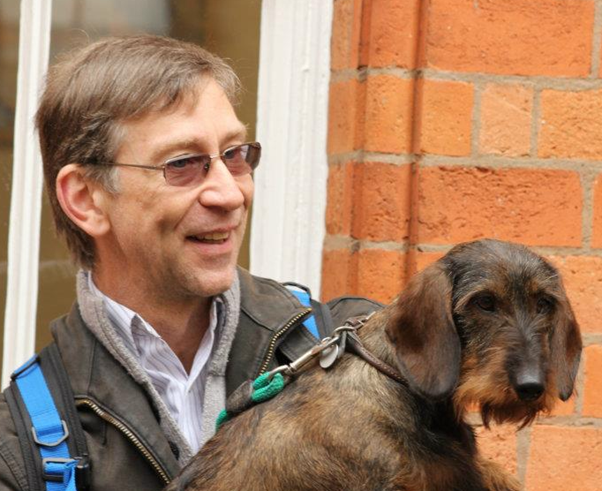 Ian J Seath (Moderator, Theme #4: Does the colour matter? Defining Breed vs Variety)
Ian J Seath (Moderator, Theme #4: Does the colour matter? Defining Breed vs Variety)
Ian Seath is a Director of the Royal Kennel Club and also chairs their Breed Standards and Conformation Health Group. He also acts as a mentor to the RKC’s Breed Health Coordinators.
Ian is a self-employed management consultant helping a wide range of clients in the private, public and voluntary sectors to build their skills for continuous improvement. He is an expert in change management and stakeholder engagement. He has an honours degree in Chemistry, a Postgraduate Diploma in Personnel Management and is a member of the Chartered Institute of Personnel and Development and the Operational Research Society.
He was Chairman of the UK Dachshund Breed Council from 2008-2022 and currently chairs the charity Dachshund Health UK which supports education and research into Dachshund health and welfare. He is an author who is asked regularly to contribute to blogs, newsletters and magazines on many aspects of canine health improvement.
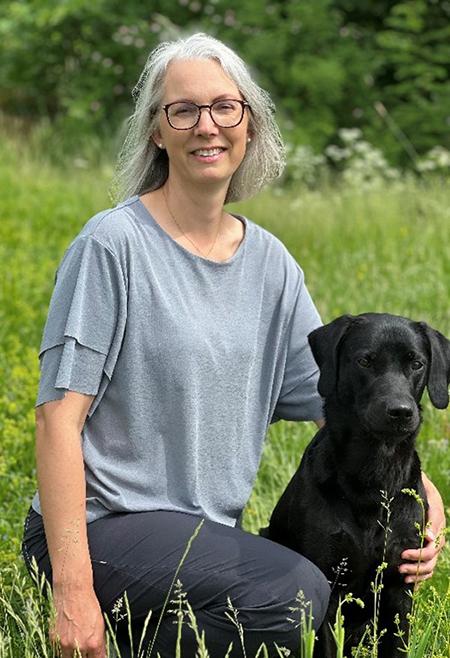 Helena Skarp (Speaker, Theme #4: Does the colour matter? Defining Breed vs Variety)
Helena Skarp (Speaker, Theme #4: Does the colour matter? Defining Breed vs Variety)
Helena obtained her MSc at the Swedish University of Agriculture (SLU). Since 2011 she has served as the Head of the Department for Breeding and Health at the Swedish Kennel Club (SKK). In her role, Helena works extensively with committees and projects focusing on areas such as health screening genetic variation, extreme conformations, and behavioural assessments.
She is the chair of the Scientific Committee of the Nordic Kennel Union (NKU) and actively involved in the International Collaborative on Extreme Conformation (ICECDogs) and the Swedish Collaborative Committee on Canine Health and Welfare.
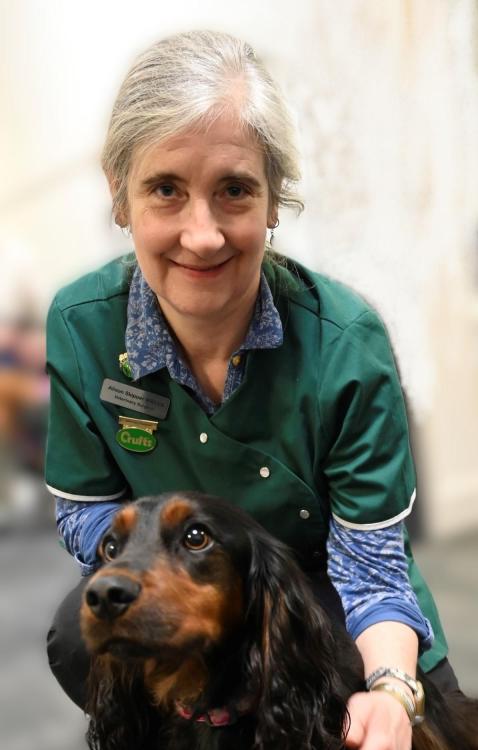 Dr. Alison Skipper (Speaker, Theme #4: Does the colour matter? Defining Breed vs Variety)
Dr. Alison Skipper (Speaker, Theme #4: Does the colour matter? Defining Breed vs Variety)
Postdoctoral Researcher in Canine Health Research, VetCompass Animal Surveillance, Royal Veterinary College
Alison is a British veterinarian with extensive experience of pedigree dog health work. She has been part of the veterinary team at Crufts for over a decade and has served on various health-related committees at the Royal Kennel Club and elsewhere.
Alison has a PhD in the history of breed-related disease in pedigree dogs and is currently a postdoctoral researcher in canine health research at the Royal Veterinary College.
She is particularly interested in improving communication between stakeholders in pedigree dog health, and in using history as a tool to better understand and productively engage with the issues that face this sector today.

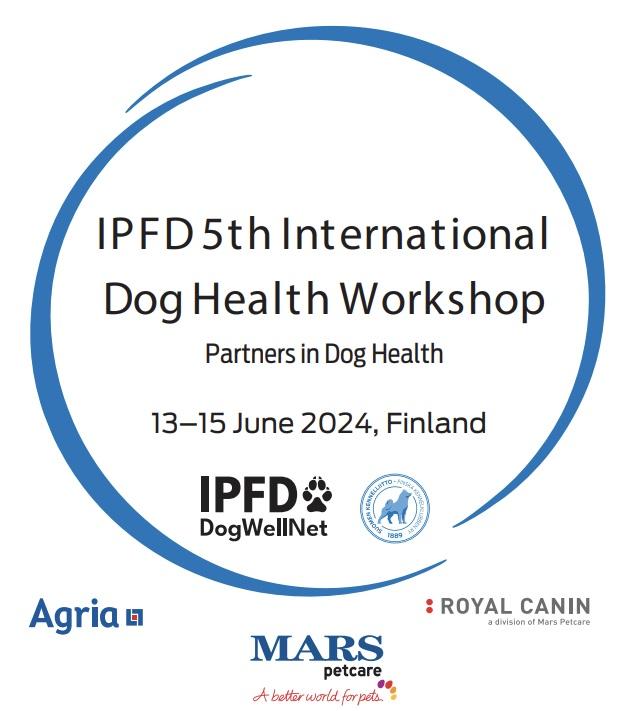
Recommended Comments
Join the conversation
You can post now and register later. If you have an account, sign in now to post with your account.
Note: Your post will require moderator approval before it will be visible.